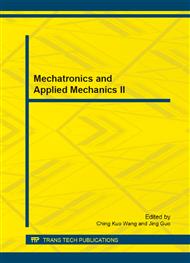p.1500
p.1505
p.1513
p.1518
p.1525
p.1529
p.1533
p.1540
p.1546
Driving Performance Advancement for SRM Using a Novel Adaptive Learning Control on Dominant Parameters
Abstract:
In this paper, an adaptive learning control (ALC) based on the repetitive tuning of the dominant energized parameters is proposed to minimize the torque ripple and energy conversion loss of the switched reluctance motors (SRMs). A simple and effective modulating strategy on excitation commutation angles and duty cycle is repeatedly applied to the SRM until desired performance tracking is achieved. According to the load variation, an initial suboptimum operating condition, derived from the expert’s knowledge and experience as well as accurate magnetization characteristics of the SRM, is offered to promise a well starting dynamics, learning ratio and convergence speed. Driving performance enhancement can be obtained on account of the best programming of phase current profiles via the well-tuned parameters to make minimum energy conversion loss and torque ripple reachable. Evolution and simulation based on the DSP-based processor has been developed to realize the proposed control approach and setup the SRM drive system. Experimental results on a 4-phase 8/6 pole SRM are given to show the effectiveness and performance enhancements of the presented control mechanism.
Info:
Periodical:
Pages:
1525-1528
Citation:
Online since:
February 2013
Price:
Сopyright:
© 2013 Trans Tech Publications Ltd. All Rights Reserved
Share:
Citation:


